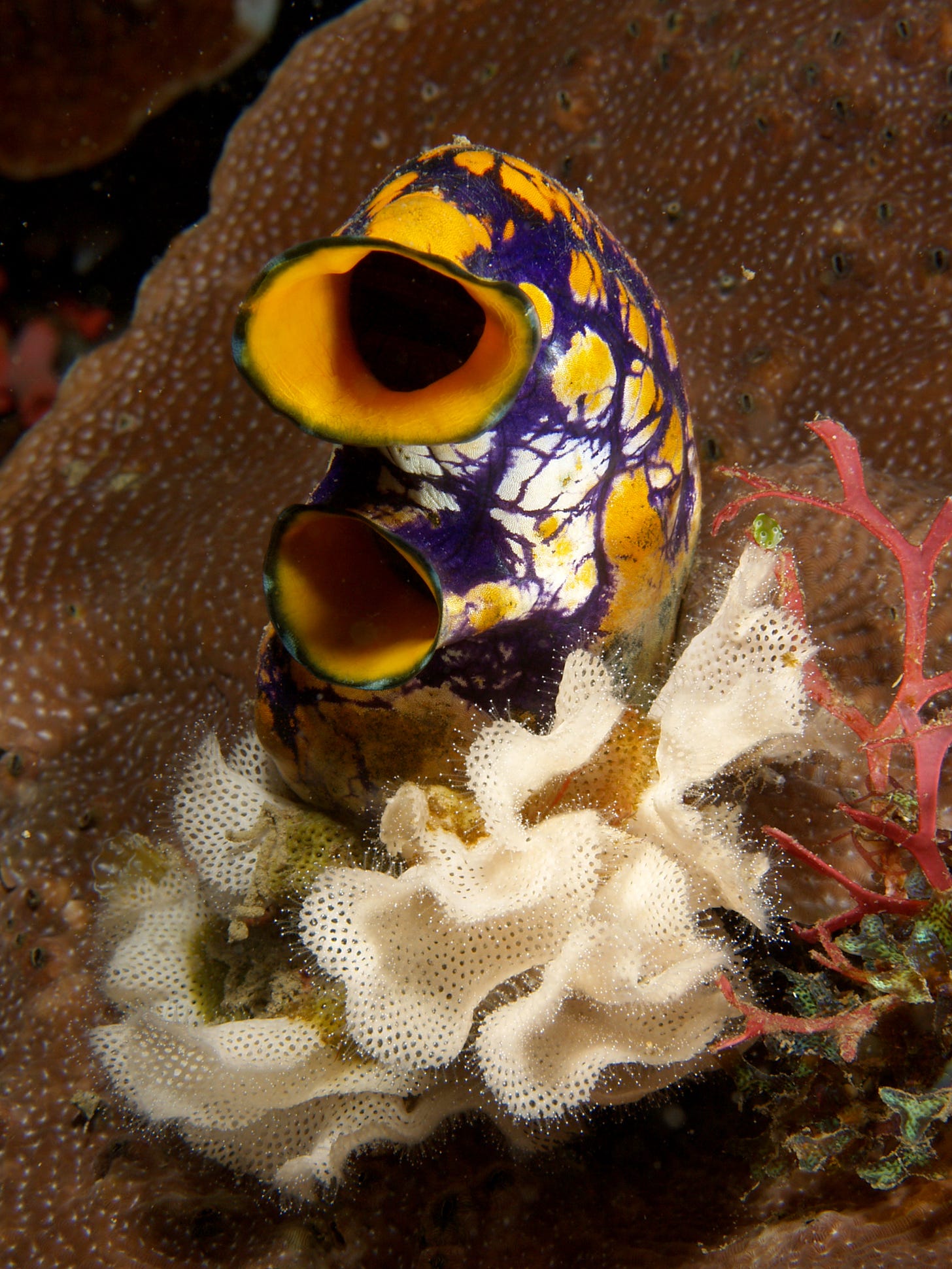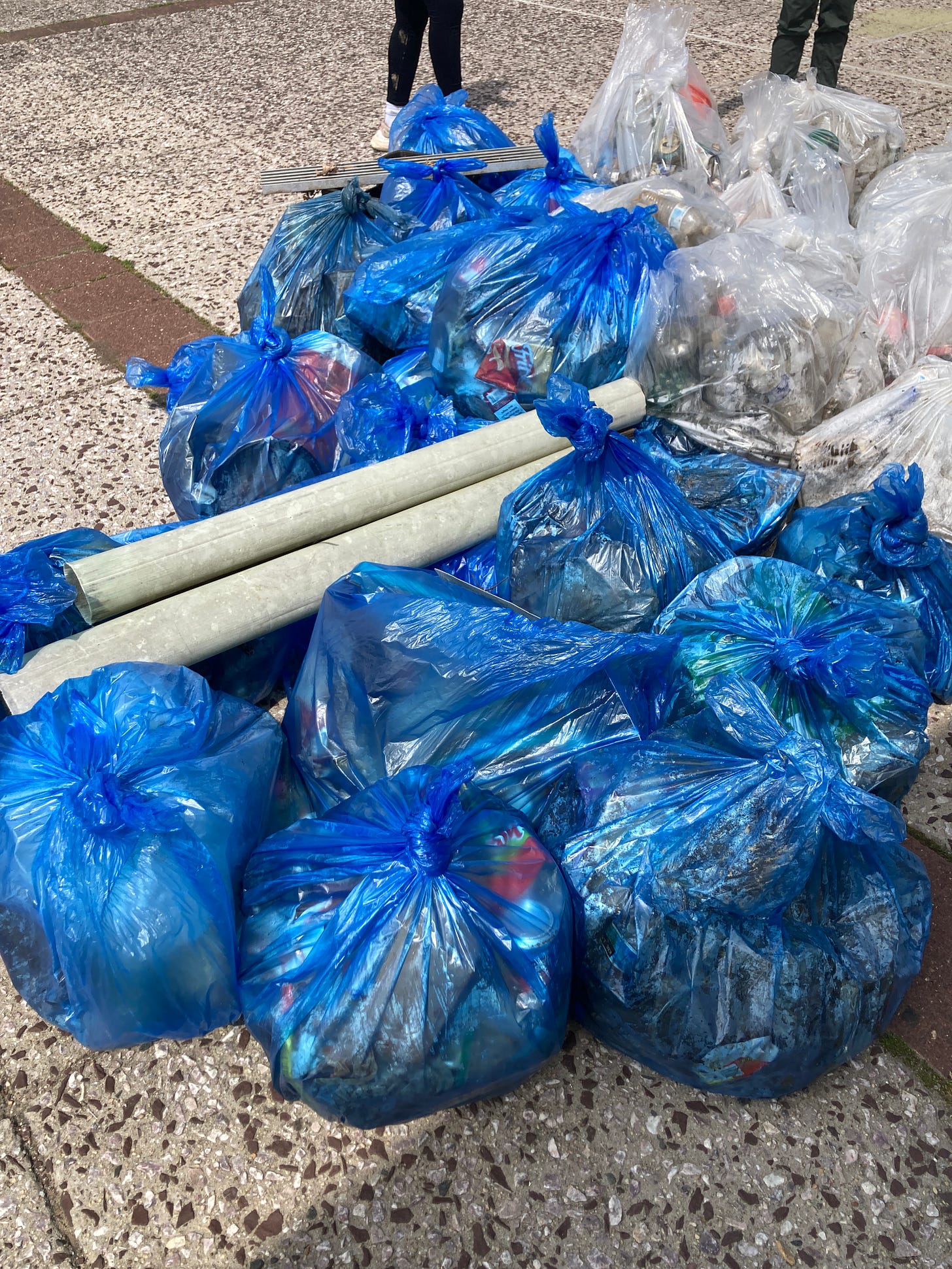I recently returned from my very first Society of Environmental Journalists meeting in Philadelphia, where I was on a a panel “Making Obscure Animals and Ecosystems Compelling Main Characters.” The conference itself was a lovely experience! People were so welcoming and open, and the panels and talks were really interesting and often extremely useful (especially the workshop on next-level community engagement, so well thought out, fun and informative)!
My panel was great, organized by Benji Jones of Vox, with environmental reporters Maya Kapoor and Doug Main. They were all of them wonderful, thoughtful panelists. It was a great discussion and we even refused to be distracted when there was an actual earthquake in the middle of it.
We got a question at the end of the session from Olivia Gieger (I’m crediting her with her permission), who’s a science journalist and getting her masters’ at NYU. The question, paraphrased, was basically “climate change, ecosystem collapse, war, and terrible things are happening all the time. How do you justify writing about weird creatures in the face of that?”
This was such a good question, and I’m so glad that she asked! Because yeah, it DOES feel honestly frivolous to be writing about rats or raccoons or sea squirts or trees when people are facing famine, wildfire season is year round, and everything we do seems to be the wrong thing. And here I am, over here on my sea squirt train.
At the time, I had two answers. But first, have a sea squirt. As a treat.
(Note: I’m having CONSTANT problems with images on substack lately, it doesn’t want me to put in alt text or captions, for some reason it breaks the image. Anyway, this is a yellow and purple sea squirt on a bed of bryozoans, image by Nhobgood - CC BY-SA 3.0 via Wikipedia)
Why should we write about weird lil’ guys? Because we need joy.
My first answer to this was about witnessing. So much of media, social media in particular, is about bearing witness. Often, deeply painful witness to really, really awful things. We seek it out because we wish to be informed, and then sometimes keep shoving the horrible details into our brains, because we feel we should. If we’re not mad, we’re not paying attention. If we don’t witness, we don’t care.
That witness is critical, we need it. We need to know what’s going on in the world, because otherwise we will never do the work to change.
But it’s possible to witness past the point of usefulness. Apparently a little climate anxiety promotes action. I personally find that when I read some doom-filled books about climate change, I become metaphorically paralyzed with despair. What’s the use? We’re all going to die. We’re killing the planet and we can do nothing. I feel the same often when I’m reading more and more about recent conflicts. What can I do? Put a sign in my yard, yell at my reps, go to a protest, support people there. I did and do all those things. Nothing has changed, and scenes of horror continue to flood my screen. Even writing about it makes me want to wrap myself in a blanket on the couch like a sad burrito.
Too much of this witnessing leads to despair. It also makes me lose perspective. After a while, everything is terrible. Everything is falling apart. I almost cannot feel anything else but bitterness.
Enter the sea squirt.
Sometimes, I write about weird animals, I post weird anatomy facts, because I need to feel a little bit of wonder. Curiosity. Joy. I want other people to feel that way too. I know how much we are witnessing. I know how much we need little things to remind us that yes, there’s pain, but there’s joy in this life too. Sometimes, it’s romance novels or bad TV or funny Tiktoks. Sometimes it’s sea squirts. The world is, indeed, awful. But it’s also wonderful, and bizarre, and fun. We need the wonder as much as we need to witness.
What are we saving the world for?
This, I think, is my far better answer. We know, because we see every day, how much of the world is broken. We know that climate change is harming biodiversity. We know it’s harming us, our physical safety, our mental and physical health.
We know we need to act, we know we need to work. But what are we working for? Sometimes, it feels like we are simply working for the removal of misery. In a world of carrots and sticks, we’re just hoping one day if we work hard enough we’ll stop beating ourselves to death.
But anyone who has studied behavioral change and reward (and, er, I have) will tell you that while punishment is a powerful motivator? Reward is much, much more. It’s a motivator, and a former of habits. We reach for things like drugs and do them again initially not just because they remove something bad, but because they feel good. It’s only later, when withdrawal begins to take hold, that we start reaching for them to stop the bad, good times be damned.
What are we trying to stop climate change and biodiversity loss and war (which leaves people in misery and ALSO causes biodiversity loss and hastens climate change) for? What are we pursuing equity and inclusion and antiracist actions for?
Yes we are doing it to take away the pain. But we also need to do it because on the other side? There is joy. Taking action on the climate crisis helps preserve the weird and the wacky and the wonderful things in our midst. Pursuing antiracist actions and traditional ecological knowledge brings joy to people living brighter lives, and helps us learn more about the world around us—giving us new perspectives on what our environment is like, opening us to wonder and deeper understanding of the world and ourselves.
Stories about raccoons and trash may make us smile. They also give us insight into animal resilience. Stories about how plants may have spread because ancient giant creatures pooped out their seeds show us the marvels of natural selection. Sea squirts start life as swimming creatures with tails and end it mistaken for sea sponges on rocks—a story that shows the wonderful diversity our planet is capable of.
Fun science stories, or really any feel-good story, can be interesting, distracting. They can give us something to talk about at the dinner table. But they also show us something else. They show us a world worth fighting for.
Citations
Koob GF, Caine SB, Parsons L, Markou A, Weiss F. Opponent process model and psychostimulant addiction. Pharmacol Biochem Behav. 1997 Jul;57(3):513-21. doi: 10.1016/s0091-3057(96)00438-8. PMID: 9218276.
Maran DA, Begotti T. Media Exposure to Climate Change, Anxiety, and Efficacy Beliefs in a Sample of Italian University Students. Int J Environ Res Public Health. 2021 Sep 4;18(17):9358. doi: 10.3390/ijerph18179358. PMID: 34501946; PMCID: PMC8431103.
Where have you been?
Is it beholding the academic edition of weaponized incompetence? “We were surprised by how brazen and explicit the male researchers were when describing their priorities.” “Several said that they actively didn’t respond to emails, or acted in an exaggerated disorganised manner. This meant they were assigned fewer tasks, but were also less frequently asked, and thus got away without doing service.”
Maybe it’s reading about rat birth control? You know what’s REALLY good rat birth control? Trash cans.
Maybe it’s PIGEON birth control! Love the take-home of this one, by Alice Sun. What’s the best pigeon birth control? NOT FEEDING THE PIGEONS.
Maybe it’s reading about the tough tardigrade, and how it repairs its own DNA.
Or maybe it’s reading about a new startup that definitely doesn’t want you to use the word “eugenics.” But…well…it’s not…NOT eugenics…
Is it reading this piece from Artologica? It resonated with me.
Where have I been?
I was up in NYC to give a talk with the FABULOUS Gwen Pearson. Again, the topic was uncharismatic animals. Gwen was an amazing conversation partner, and you can see for yourself, because the whole talk is available online.
I got to write for Scientific American again, and this time I took on why your nose runs when you cry. The answer is that your tears cannot be contained. They escape through every available orifice.
I was on the Brain Scoop book club, and it was SUCH fun. A wonderful audience, and Emily Graslie is exactly as awesome as you think she is. She’s got a lovely Discord community, check it out!
Anti-discourse actions
What are these? It’s me, when I am fed up with the Discourse, with everyone demanding others fall in line and declare things…and yet, not do things.
We did an Earth Day cleanup! I was super thrilled to be able to do the cleanup along my favorite running trail. All this trash? That was about 30 of us going maybe 1/2 mile in each direction. It’s WILD how much trash ends up in the watershed. It’s a little thing, but it makes me happy to contribute to cleaning a place I love and spend so much time in. (Image below, a pile of about 20 full trash bags, with additional PVC pipes, grills, boxes. Tires not pictured but there were a few of those.)
I continue my campaign against the Libs of Tiktok substack. I’m going through that disgusting cesspool and reporting things that qualify as harassment. Thus far, nothing has happened. But I’m very, very persistent.
While at the Earth Day cleanup I heard about a bottle bill introduced in my state! It will let people turn in their bottles for a little bit of money, cutting down on plastic pollution and promoting reuse. I’m very excited and contacted my reps to know I support it. It’s just as critical to tell reps what you DO like as it is to tell them what you don’t.







Absolutely this! I’m also writing about weird little animals right now and I couldn’t have put it better. We need joy and wonder and humour in order to care, and then we fight for what we care about. Yes to sea squirts and raccoons and all the other little weirdos!
Loved the double response to that question. We all need a little beauty/joy in our lives.